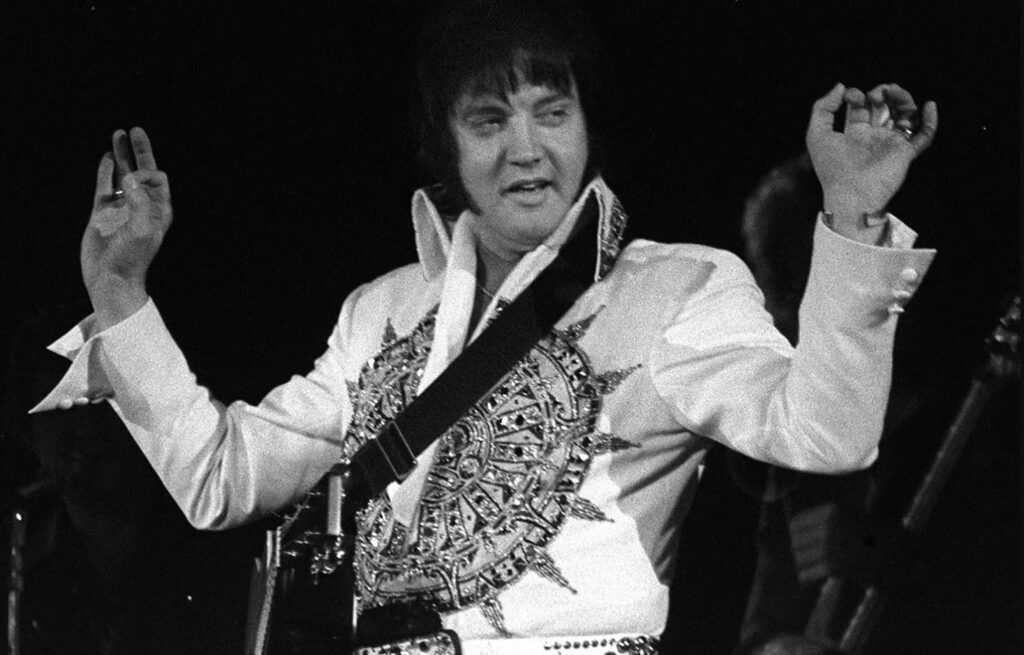
Elvis Presley Sings “Can’t Help Falling in Love” During His Final Performance: A Poignant Farewell to an Icon
In the twilight of his storied career, Elvis Presley, the undisputed “King of Rock and Roll,” graced the stage for the last time on a warm night in June 1977. Among the songs performed during this final concert was one of his most cherished ballads, “Can’t Help Falling in Love.” This song, originally released in 1961 as part of the soundtrack for the film Blue Hawaii, had long since woven itself into the very fabric of his legend and into the hearts of millions worldwide. As he sang it during that poignant final performance, it became not only a farewell but also a heartfelt testament to his enduring connection with his fans.
“Can’t Help Falling in Love” holds a special place in musical history, resonating with audiences through its tender melody and profound lyrics. Written by Hugo Peretti, Luigi Creatore, and George David Weiss, it draws inspiration from an 18th-century French love song, “Plaisir d’amour,” and captures the essence of inevitable love with graceful simplicity. Upon its initial release, the song quickly climbed the charts, securing a spot within the top ten of the Billboard Hot 100 and eventually becoming one of Elvis’s most beloved hits.
The story behind this timeless classic is as compelling as its melody. It speaks to an era when Elvis Presley was not merely a performer but a cultural phenomenon who revolutionized music and influenced generations. His rendition of “Can’t Help Falling in Love” became synonymous with romantic devotion, making it a popular choice for weddings and intimate gatherings around the world. For many, the song encapsulates that indescribable feeling of being swept away by love’s tide—a theme that resonates universally across age groups and cultures.
As Elvis stood before his audience during that final performance in Indianapolis, there was an air of both celebration and nostalgia. The king was visibly tired, yet his voice carried the same warmth and sincerity that had endeared him to millions. Singing “Can’t Help Falling in Love” that night was more than just revisiting a hit; it was a poignant reminder of his journey—a journey marked by groundbreaking achievements and personal struggles alike.
For older fans who had followed him from his rise to fame in the 1950s through the various phases of his career, this performance was laden with emotion. It stirred memories of youthful days when Elvis’s voice first crackled through radios and television screens—a voice full of promise and rebellion that spoke directly to their hearts. This farewell rendition became a bridge between those golden years and the present moment, encapsulating both what had been and what would endure beyond his passing.
Elvis Presley’s influence extended far beyond mere music; he symbolized an era’s dreams and aspirations. With “Can’t Help Falling in Love,” he left us with a beautiful reminder that some emotions transcend time. Even now, decades after that final performance, listening to Elvis sing these words can evoke powerful memories—of first loves, lifelong commitments, or simply moments when we felt most alive.
In remembering Elvis Presley’s last performance, we are reminded not only of his unparalleled talent but also of how deeply he touched our lives through song. His legacy lives on in every note of “Can’t Help Falling in Love,” capturing forever the tender vulnerability that made him not just an icon but a beloved figure who still whispers to us across time.